Introduction
I am taking an online Introduction to Computer Science course for which I was given the task to create a function that takes in a coordinate and returns its corresponding "spiral index". I have a working function, but the online learning platform tells me that my code takes too long to execute (I am currently learning about code complexity and Big O notation).
The Problem Statement
All numbers on an infinite grid that extends in all four directions can be identified with a single number in the following manner:
Where 0 corresponds with the coordinate (0, 0), 5 corresponds with the coordinate (-1, 0), and 29 with (3, 2).
Create a function which returns the spiral index of any pair of coordinates that are input by the user.
Examples:
spiral_index(10, 10)returns 380.spiral_index(10, -10)returns 440.spiral_index(3, 15)returns 882.spiral_index(1000, 1000)returns 3998000.
My Approach
def spiral_index(x, y):
if x == 0 and y == 0:
return 0
pos = [1, 0]
num = 1
ring_up = 0
ring_left = 0
ring_down = 0
ring_right = 0
base = 3
while pos != [x, y]:
if ring_up < base - 2:
pos[1] += 1
ring_up += 1
num += 1
elif ring_left < base - 1:
pos[0] -= 1
ring_left += 1
num += 1
elif ring_down < base - 1:
pos[1] -= 1
ring_down += 1
num += 1
elif ring_right < base:
pos[0] += 1
ring_right += 1
num += 1
else:
base = base + 2
ring_up = 0
ring_left = 0
ring_down = 0
ring_right = 0
return num
The above code is able to find the correct index for every coordinate, and (on my laptop) computes spiral_index(1000, 1000) in just over 2 seconds (2.06).
Question
I have seen some solutions people have posted to a similar problem. However, I am wondering what is making my code so slow? To my knowledge, I believe that it is executing the function in linear time (is that right?). How can I improve the speed of my function? Can you post a faster function?
The course told me that a for loop is generally faster than a while loop, and I am guessing that the conditional statements are slowing the function down as well.
Any help on the matter is greatly appreciated!
Thanks in advance.
